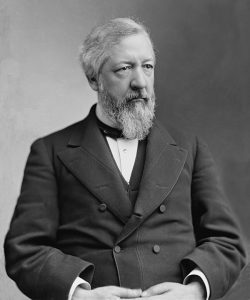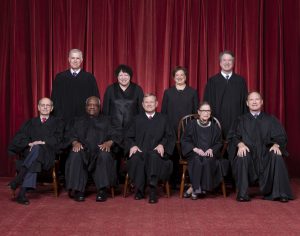
Religious News From Around the Web, Jan 13th 2020
- By WRN Editorial Staff --
- 13 Jan 2020 --
Giving Machines, Blaine Amendment, Religious Court Cases, Confessional Confidentiality, Taliban Destroyed now Repaired, Jewish and Muslim Women Meet, ERA is Dead
Latter-day Saints Giving Machines Raise $6.3 Million
 Latter-day Saint “giving machines” that look like vending machines have helped the church raise some $6.3 million over the holidays. Donors swipe a credit card, then select from a series of items from $5 to $350 that includes chickens, meals, vaccines, shoes and glasses. In all, nearly 256,000 items have been purchased by the public for the global charitable effort. Local charities benefit as well as UNICEF, Church World Service, WaterAid, Water For People and International Medical Corps.
Latter-day Saint “giving machines” that look like vending machines have helped the church raise some $6.3 million over the holidays. Donors swipe a credit card, then select from a series of items from $5 to $350 that includes chickens, meals, vaccines, shoes and glasses. In all, nearly 256,000 items have been purchased by the public for the global charitable effort. Local charities benefit as well as UNICEF, Church World Service, WaterAid, Water For People and International Medical Corps.
Montana Case Could Trash the Blaine Amendment
 President Grant, in 1875 proposed a free secular public education with no funding for religious schools. The idea appealed to those opposed to Catholic immigrants and their parochial schools, as well as those who favored separation of church and state. The Blaine Amendment, proposed by Congressman James G. Blaine, did not become federal law, but most states passed their own versions, and government funding was effectively shut off. Now, a case in Montana could open the state “Blaine Amendments,” touted by some as anti-Catholic bigotry, to legal scrutiny.
President Grant, in 1875 proposed a free secular public education with no funding for religious schools. The idea appealed to those opposed to Catholic immigrants and their parochial schools, as well as those who favored separation of church and state. The Blaine Amendment, proposed by Congressman James G. Blaine, did not become federal law, but most states passed their own versions, and government funding was effectively shut off. Now, a case in Montana could open the state “Blaine Amendments,” touted by some as anti-Catholic bigotry, to legal scrutiny.
Religious Court Cases on Docket
Seated, from left to right:
Justices Stephen G. Breyer and Clarence Thomas,
Chief Justice John G. Roberts, Jr.,
and Justices Ruth Bader Ginsburg and Samuel A. Alito.
Standing, from left to right:
Justices Neil M. Gorsuch, Sonia Sotomayor,
Elena Kagan, and Brett M. Kavanaugh.
Photograph by Fred Schilling,
Supreme Court Curator’s Office.
Buddhist Statues Destroyed by Taliban, Restored
In 2001, the Taliban ransacked the National Museum of Afghanistan and destroyed ancient Buddhist statues from Hadda. Now, the Museum’s conservators and the University of Chicago’s Oriental Institute are restoring the statues with preservation grants from the U.S. Embassy in Kabul.
Church Reports Sex Abuse, is Sued for Breach of Confidentiality
A Latter-day Saint woman from Oregon, whose husband confessed to church officials that he had had sex with a girl under the age of 16, was reported to the police by the church, and the man’s wife is now suing the church for more than $9 million for breach of confidentiality. The woman’s attorney said confession is confidential, the church says protecting victims is its first priority. A bill proposed in Utah would require clergy to report any instances of child abuse, and some observers say the case could have broader implications on how confessionals are handled. In a similar case the Montana Supreme Court reversed a $35 million judgement against the Jehovah’s Witnesses for not reporting a case of sexual abuse.
Jewish and Muslim Women Find Common Ground in Topeka
Muslim and Jewish women in Topeka, Kansas, have formed the Sisterhood of Salaam Shalom. The group meets often and according to the Topeka Capital Journal, the women have found friendships that transcend the differences in their religious traditions. The women found many similarities in their traditions “In this time of polarization in American politics, it is good to be reminded that, when you get below the differences in faiths, most religions at their core focus on trying to bring more goodness into the world,” said Rabbi Debbie Stiel, of Temple Beth Sholom.
Equal Rights Amendment is Dead
The Equal Rights Amendment? Wasn’t that passed years ago? No it wasn’t. It was first introduced to Congress in 1923, and guaranteed equality between genders. But in order to pass, it had to be ratified by two-thirds of state legislatures, a target that was never met. While the Amendment had bipartisan support, its popularity waxed and waned, the deadline for passage was extended, but unsuccessfully. Conservatives objected as it would make women eligible for the draft, cause them to lose alimony and give men and women equal footing in child custody battles. The Civil Rights Act of 1964 provides workplace protections based on sex, religion and national origin, and many states have since enacted their own protections.


















